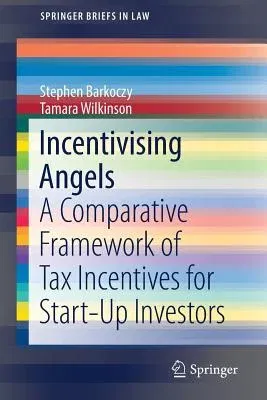Stephen Barkoczy
(Author)Incentivising Angels: A Comparative Framework of Tax Incentives for Start-Up Investors (2019)Paperback - 2019, 7 May 2019

Qty
1
Turbo
Ships in 2 - 3 days
In Stock
Free Delivery
Cash on Delivery
15 Days
Free Returns
Secure Checkout
Part of Series
Springerbriefs in Law
Print Length
120 pages
Language
English
Publisher
Springer
Date Published
7 May 2019
ISBN-10
9811366314
ISBN-13
9789811366314
Description
Product Details
Authors:
Book Edition:
2019
Book Format:
Paperback
Country of Origin:
NL
Date Published:
7 May 2019
Dimensions:
23.39 x
15.6 x
0.74 cm
ISBN-10:
9811366314
ISBN-13:
9789811366314
Language:
English
Location:
Singapore
Pages:
120
Publisher:
Series:
Weight:
199.58 gm

